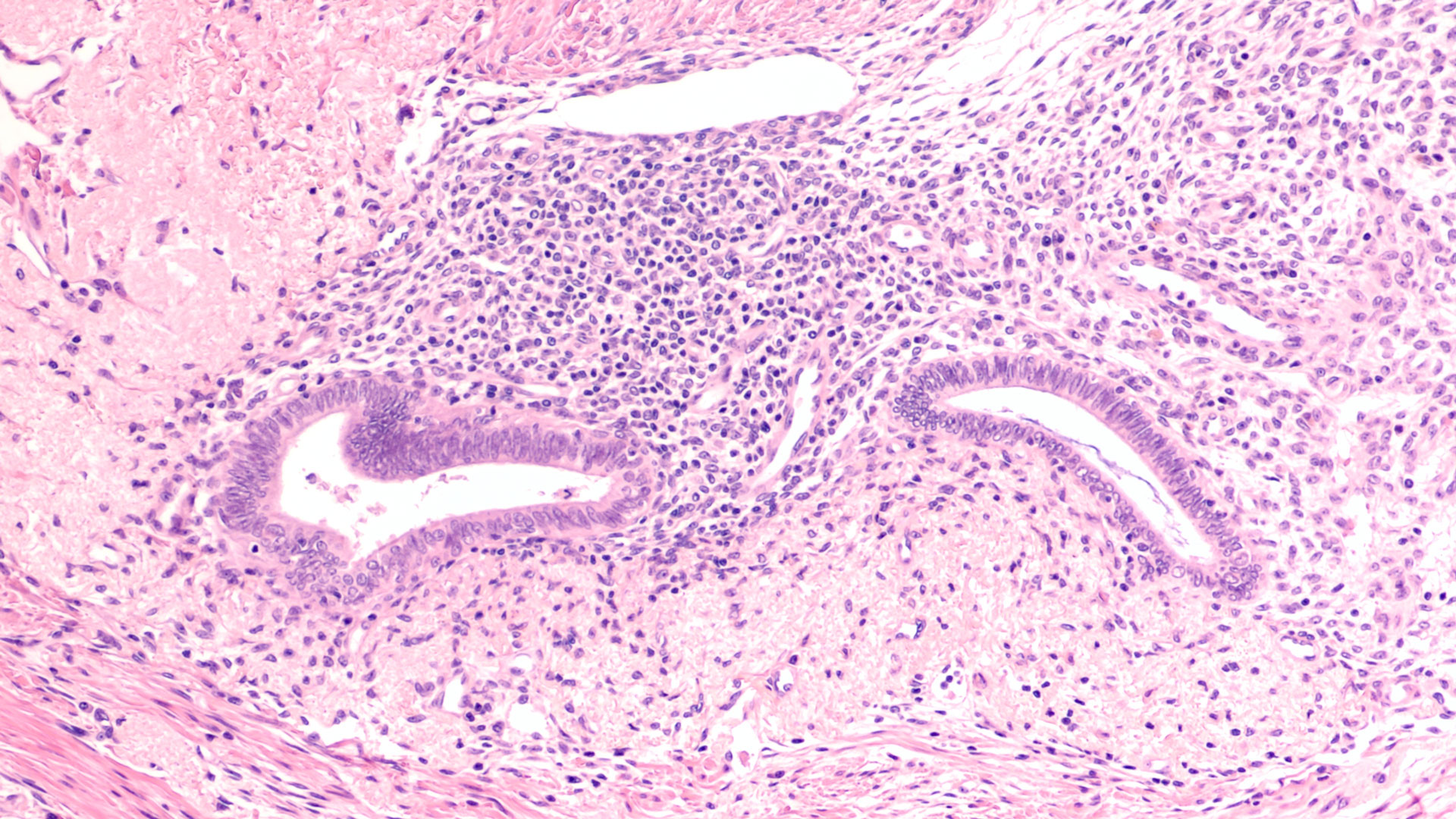
In addition to significant pain and discomfort due to this disturbance, patients with endometriosis can experience dyspareunia (painful sex), bowel and urinary disorders, and neuropathy (weakness, numbness and pain caused by nerve damage) in lower extremities. Endometriosis is also the leading cause of infertility and early hysterectomies.

Microscopic section of endometrial lesion located in subcutaneous abdominal tissue.

Prevalence and anatomical distribution of endometriosis
Within the field of gynecological research and treatment, the endocannabinoid system (ECS) has emerged as an exciting new target for the pharmacological management of endometriosis-related symptoms.
Current data and theories concerning the link between the ECS and management of endometriosis patients further show that:
These findings suggest that the endocannabinoid system significantly contributes to mechanisms underlying both the peripheral innervation of abnormal endometrial growths as well as the pain associated with endometriosis. This evidence provides the basis for a novel approach to the development of new, effective cannabinoid-based treatments.